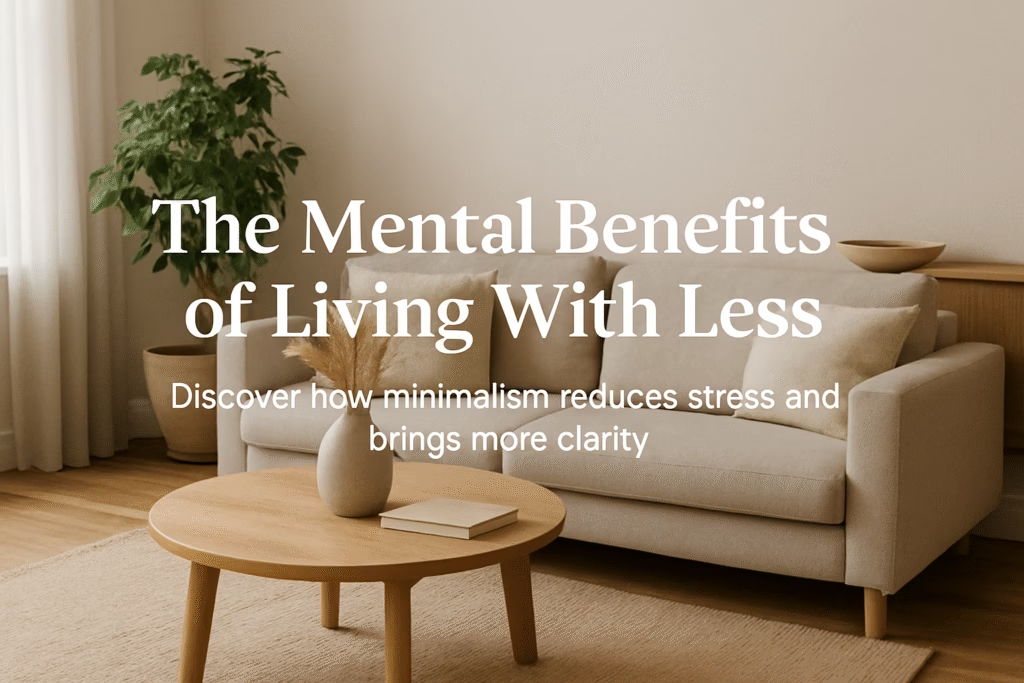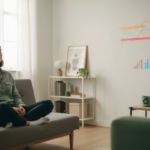Many people explore minimalism for practical reasons—less clutter, easier cleaning, or saving money. But there’s a deeper, often overlooked benefit: your mental health.
Living with less can reduce anxiety, improve focus, and bring a sense of calm that no amount of stuff can offer. This article explores how simplifying your physical space leads to psychological clarity and emotional balance.
Clutter Is a Silent Stressor
Even if you don’t notice it, clutter takes a toll on your mind. Studies have shown that a chaotic environment increases cortisol (the stress hormone) and contributes to:
-
Mental fatigue
-
Feelings of overwhelm
-
Difficulty focusing
-
Trouble sleeping
Every object in your environment demands some degree of attention. The more stuff, the more mental noise.
Less Stuff, More Clarity
When you remove the excess, your brain stops working overtime. You start to feel:
-
More focused: Your mind isn’t distracted by visual clutter.
-
More peaceful: A clean, open space sends a calming message to your nervous system.
-
More in control: When your environment feels manageable, so does life.
Minimalism brings a sense of mental spaciousness that’s hard to describe—like finally being able to exhale after holding your breath.
Decision Fatigue Disappears
We make thousands of decisions every day. What to wear, eat, watch, buy, and do. Living with less helps reduce decision fatigue by:
-
Streamlining your wardrobe
-
Simplifying your meals
-
Limiting your commitments
With fewer choices, your brain gets to focus on what actually matters.
A Calmer Mind Means Better Relationships
When you feel mentally clear and calm, you’re more patient, present, and emotionally available. This directly benefits your relationships:
-
Less irritability from stress
-
More time for connection
-
Greater presence in conversations
In contrast, a cluttered mind tends to bring tension into interactions.
Better Sleep, Naturally
Your bedroom isn’t just a place to rest—it’s a reflection of your mental state. A minimalist bedroom often means:
-
No piles of laundry or open storage bins
-
Calmer colors and lighting
-
No TV or phone distractions
As a result, your brain feels safer, and your sleep quality improves.
Living With Less Builds Emotional Resilience
Letting go of material items can be emotional—but that process builds resilience. You learn to:
-
Separate identity from possessions
-
Find comfort in simplicity
-
Cope with discomfort instead of avoiding it with shopping
Minimalism helps you develop internal strength instead of relying on external things.
You Reconnect With the Present Moment
When you’re not constantly chasing the next purchase, organizing clutter, or managing excess, you have more time to be here, now.
-
You notice small joys
-
You experience less urgency
-
You feel more grounded
Living with less is a path to mindfulness, even if you never meditate.
It’s Not About Having Nothing—It’s About Making Space
Minimalism isn’t about living in an empty house. It’s about living in a space that supports your peace of mind. It’s about choosing mental clarity over material chaos.
The mental benefits of living with less aren’t abstract—they’re real, profound, and life-changing. And they begin with one simple question:
What can I let go of today that no longer serves my peace?






